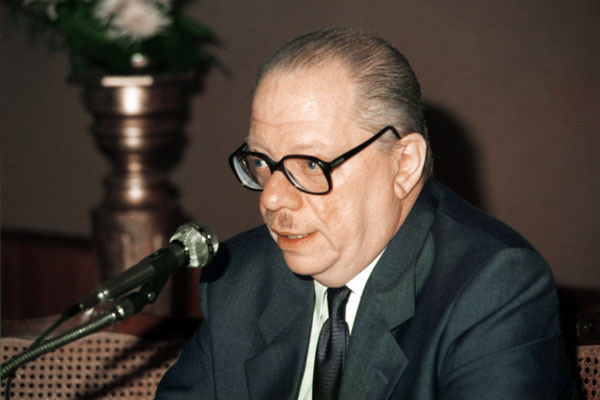Growing Nihilism Among Young People
Article By Istvan Orban
 Nihilism is the viewpont or belief that things and life in general are meaningless. It comes from the Latin word nihil, which means ‘nothing’. Nihilism does not accept those moral and knowledge-based values that are owned by societies. Nihilism became known in the 18th century in Europe, when German writers and philosphers discussed the negation of Christianity and the European tradition in general. Although there is no systematic description of this view, many philosophers have used the term nihilism. Like Friedrich Nietzsche, who described how the Western world suffered a disintegration of its traditional morality and fell into decline. But in Russia, an entire nihilist movement appeared in the 19th century, after the term was popularized by Ivan Turgenev. The nihilist characters in his novel Fathers and Sons denied everything and attacked the old, traditional values. Anarchists also explored the term and believed that it represents the suffering one feels under a tyrannical or oppressive system. Though nihilism was connected to political activism, most nihilists were not active on this level, and did not offer any alternatives to the ruling system, they just denied it.
Nihilism is the viewpont or belief that things and life in general are meaningless. It comes from the Latin word nihil, which means ‘nothing’. Nihilism does not accept those moral and knowledge-based values that are owned by societies. Nihilism became known in the 18th century in Europe, when German writers and philosphers discussed the negation of Christianity and the European tradition in general. Although there is no systematic description of this view, many philosophers have used the term nihilism. Like Friedrich Nietzsche, who described how the Western world suffered a disintegration of its traditional morality and fell into decline. But in Russia, an entire nihilist movement appeared in the 19th century, after the term was popularized by Ivan Turgenev. The nihilist characters in his novel Fathers and Sons denied everything and attacked the old, traditional values. Anarchists also explored the term and believed that it represents the suffering one feels under a tyrannical or oppressive system. Though nihilism was connected to political activism, most nihilists were not active on this level, and did not offer any alternatives to the ruling system, they just denied it.
Nowadays, nihilism is not a philosophy, but rather a feeling about life, a kind of apathy or pessimism. It is rising, especially among young people in the Western world, who feel there is no reason behind anything, societies are corrupt and human nature is wicked. Most of the young people who are nihilists feel alienated and demotivated, and sometimes display traces of misanthropy. Recently, the pandemic amplified the phenomenon, when young people were disconnected from their peers and left alone with their problems and frustrations. The nihilists feel they cannot cope with the reality they are facing. Global issues like unemployment, rising costs, inequality, broken families, climate crisis, and so on make them feel depressed and powerless. They often turn to drugs and alcohol to ease the weight of their problems or at least forget them for a while. Feeling themselves unable to act in the ruling system takes away any hope that they can create a better future. So, instead of changing it, they go for quick, instant pleasures and become nihilists. In this way, they feel they have solved the problems. As in the case of the climate crisis, many people feel that the actions they take on a small scale, such as stopping eating meat or not using cars, except when it is really necessary, do not have a great impact on the whole system, where billions eat meat or pollute the air with their cars. So why they should worry about the future?
Jordan Peterson, the well-known psychologist, has said: “There is no acceptable reason for nihilism. This is not, for example, people suffering from clinical depression – there can be many reasons why someone becomes in this state. This is the cynical, arrogant, rational, hyper-intelligent nihilism that dismisses the world as worthless before it has properly examined it. The correct behavior is to investigate and if we do not find an answer, we ask the question whether it is because we did not search well or because we formulated our need incorrectly.” As a result of the rising nihilism in the Western world, more and more people are depressed, taking drugs and medicines, or commit suicide to escape from reality. According to Zygmunt Bauman, modern nihilism is a consequence of capitalism and consumerism that has created global uniformity. Traditional values have disappeared, as have transcendent meanings and local values. Instead, we all become average thanks to mass production. “Mass society produces mass people in mass sizes”, he states, and because of this, people feel rootless and lose their uniqueness and the meaning of their life.
The solution can be to rediscover ourselves and the world we are living in. Everyone’s life is special, just as there are no identical leaves on a tree. In the same way, all acts or thoughts matter and change the world a bit. Lot of bits will make a big change. Gratitude towards nature and the ancestors who have enabled people to live in the present can also help to liberate from nihilism that leads nowhere. If we think that we are on a path, even if we do not know where it comes from or where it leads to, it is our decision how we make our journey, whether in an exciting or in a boring way. Dedicating a life to aims that survive the present gives hope, a positive attitude and merit. In this way, one can leave behind the black hole of nihilism.
Image Credits: By Ilya Komov | Pexels | CC0
The entity posting this article assumes the responsibility that images used in this article have the requisite permissionsImage References
By Ilya komov | Pexels | CC0
Permissions required for the publishing of this article have been obtained




What do you think?